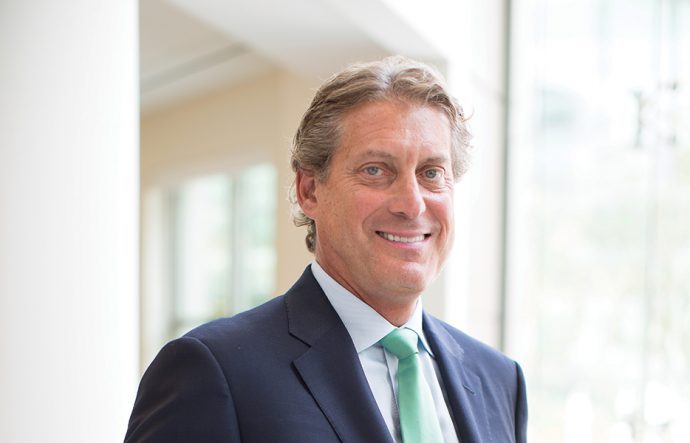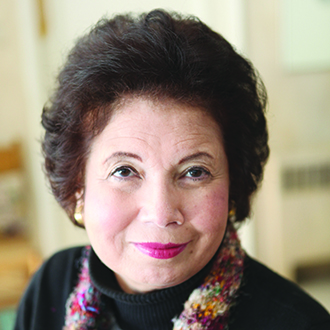The human hand represents a triumph of complex engineering, designed to perform a multitude of diverse tasks with strength, delicacy, dexterity and, as with a concert pianist, amazing technique.
And the surgeons who specialize in the care and treatment of our wonderful hands have developed their own masterful techniques for healing these essential appendages.
One of them is Dr. Paul Fragner of the Orthopaedic Specialists division of White Plains Hospital Physicians Associates, with offices in Armonk and West Harrison. He and his team treat adults and children for any disorder or injury involving the hand, wrist or elbow, surgically or nonsurgically.
TECHNIQUE REIGNS SUPREME
“In the world of surgery,” he says, “technique is everything. And in the lexicon of surgical semantics, the word ‘technique’ has two distinct but equally important meanings. The first, as in ‘he has wonderful technique,’ is the surgeon’s deftness, dexterity, accuracy and speed while using his hands to artfully and precisely manipulate surgical instruments to perform the desired procedure. Among colleagues, this is known as ‘having great hands’ in the operating room.”
Fragner says that, in the second sense, technique refers to the surgeon’s particular preference for performing and accomplishing the specific surgical goal.
“Surgeons often ask other surgeons: ‘Which technique do you use for correcting this problem?’ Or a surgeon may explain to his patient that he has developed his own technique for the procedure that combines several features of other techniques with less blood loss, a quicker recovery time and excellent results.”
Because of their complex structure and many functions, hands demand the best possible surgical techniques,” Fragner says.
“Depending on the procedure, you are dealing with bones, joints, tendons, ligaments, nerves and a host of other related parts. The hand, which I compare to a fine Swiss watch, is about as complicated as you can get in the orthopedic realm, and you need a lot of experience to become very good at hand surgery.”
Fragner adds that just possessing great surgical technique, by itself, does not necessarily make one a great surgeon. “Just as many factors go into having outstanding technique, having such technique is only one of many ingredients needed to be an outstanding surgeon.”
COMPONENTS OF TECHNIQUE
Fragner says he has pondered why some surgeons “have better technique” than others and, in his opinion, “just like a world-class artist, musician, martial artist or architect, there are three essential components necessary to develop excellent technique — genetics, experience and passion.”
In terms of genetics, Fragner says some individuals are lucky to have been blessed with nimble hands, while others, unfortunately, are “all thumbs.”
“To a certain extent, of course, technical prowess can improve with excellent mentors and training, practice and persistence.”
Fragner says the value of the surgeon’s experience cannot be overstated. “This not only means the number of hours of training and in practice but also whom the surgeon has been fortunate to have had as instructors, teachers and mentors. The body of experience starts in medical school, continues through residency, then fellowship and on into practice.”
And surgeons can never get enough practice. “The more procedures the surgeon performs, the more refined his technique becomes,” Fragner adds. “This is one of many reasons patients should never choose a surgeon who is new to practicing.”
Finally, passion is a major contributor to developing outstanding surgical technique.
“To truly excel at anything — surgery, cooking, tightrope walking or journalism — one needs to be passionate about it. Loving your craft and possessing a true desire to be the best at it is critical to actually becoming the best.”
So that surgeon with the “great hands” most likely inherited a special genetic gift from his parents, trained and practiced diligently at the right places at the right time with the right teachers and really loves doing surgery.
Fragner puts himself in this fortunate group. A graduate of the SUNY Upstate Medical University College of Medicine, Fragner received subspecialty fellowship training in hand and upper extremity surgery at the Perelman School of Medicine, University of Pennsylvania. He is chief emeritus of the Division of Orthopaedic Surgery at White Plains Hospital and has served as a medical consultant to the New York Rangers hockey team.
While he loves performing an array of different procedures, he is especially gratified by his work with children. “I see a lot of little kids with sports injuries. They can often be treated right in the office, and I like it when I treat patients with problems that can resolve themselves over time with proper care but no surgery.
“For me personally when I do perform hand surgery, I love that I am able to use my own hands to heal the young and old, injured or arthritic, athletes and secretaries, so they can get back to using their hands with freedom and no pain. For this, I am truly blessed.”
For more, visit wphphysicianassociates.org or call 914-946-1010.





